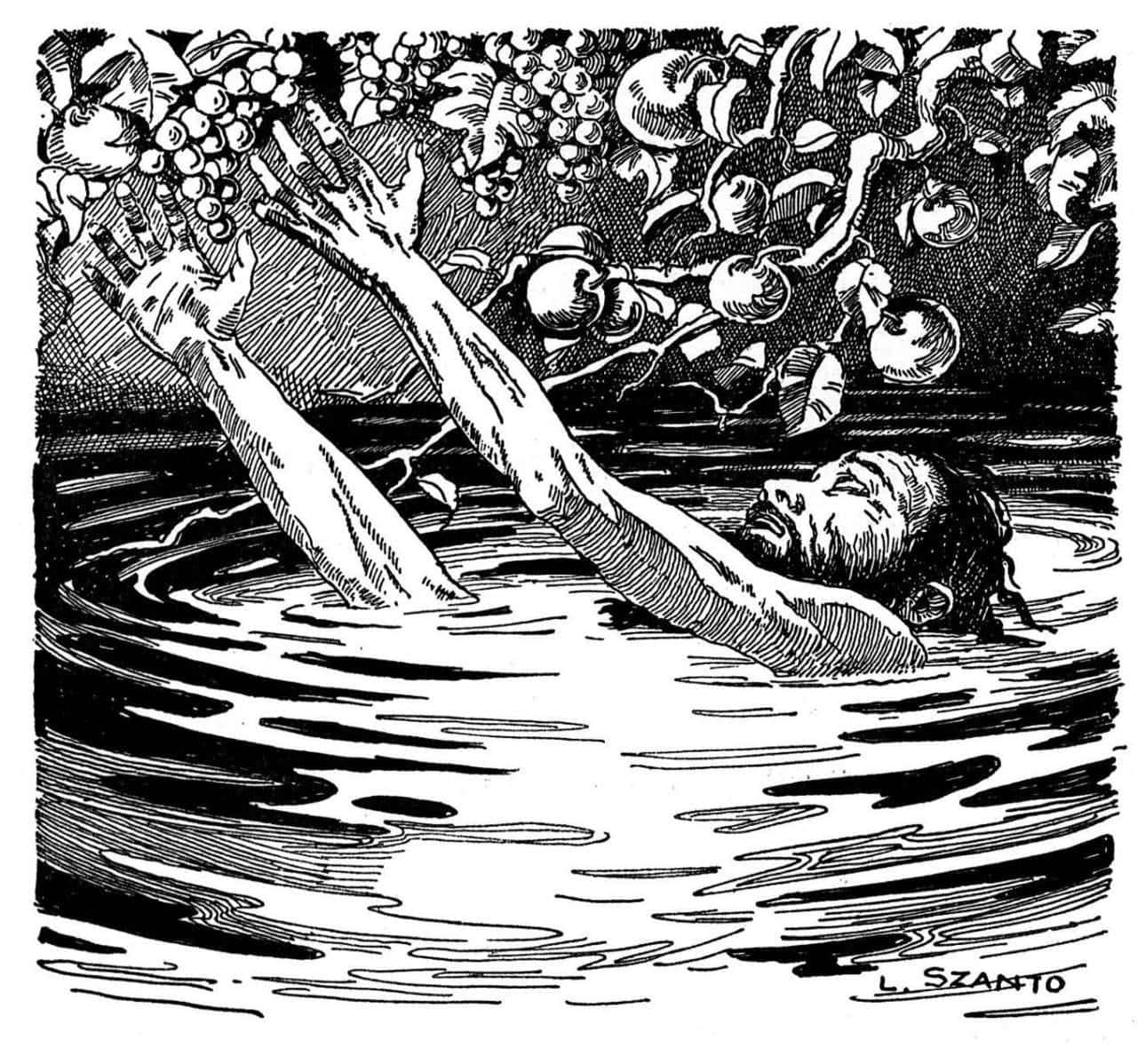
ADVERTISEMENT - CONTINUE READING BELOW
25. The Gods Did a Number on Tantalus
When Tantalus served up his cooked son to the gods, the only deity who partook was the goddess Demeter. She was distracted by the demise of her daughter, Persephone, and absent-mindedly ate part of Pelops’ shoulder. Zeus gathered the rest of the boy’s body parts, got the god Hephaestus to make him a bronze shoulder, put them all together and restored the kid to life. Zeus then turned on Tantalus, and subjected him to the wrath of the gods. Zeus destroyed Tantalus, then personally took his soul to Hades, the underworld of Greek mythology. There, the chief god devised a punishment that became a proverbial term for temptation. Tantalus was placed in a pool of water, beneath a fruit tree with low branches. Whenever he reached for the fruit, the wind wafted the branches away, and whenever he reached for water to take a drink it flowed away from him.

ADVERTISEMENT - CONTINUE READING BELOW
Thus he was tormented by constant hunger and thirst, despite the fact that there was plenty of food and water nearby. It is from the mythology of Tantalus’ punishment, of somebody who desperately wants something that seems so close, but that is just beyond reach, that we get the English word “tantalize”. While Tantalus’ divine punishment and other supernatural aspects of his story are mythical, there might have been a historical king Tantalus in real life, who ruled an Anatolian city named Tantalis. The geographer Strabo cited earlier sources that described the wealth of Tantalus, which derived from mines in Mount Sypilus. In the second century, AD, the geographer Pausanias wrote that he saw a sepulcher of Tantalus, and visited a port that bore his name. Archaeological evidence also attests to the existence of a king Tantalus in ancient times.

